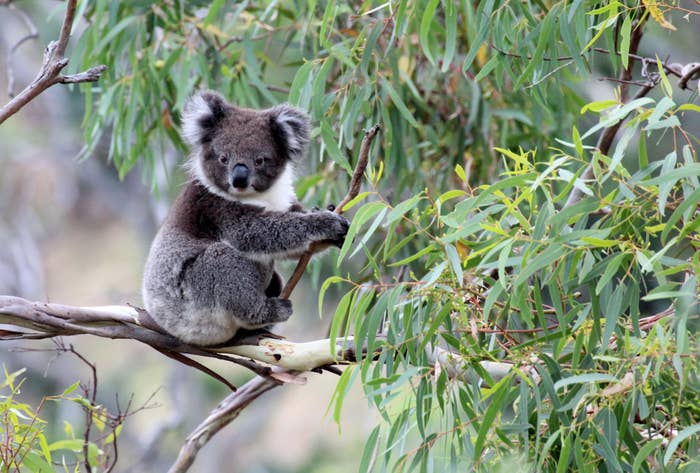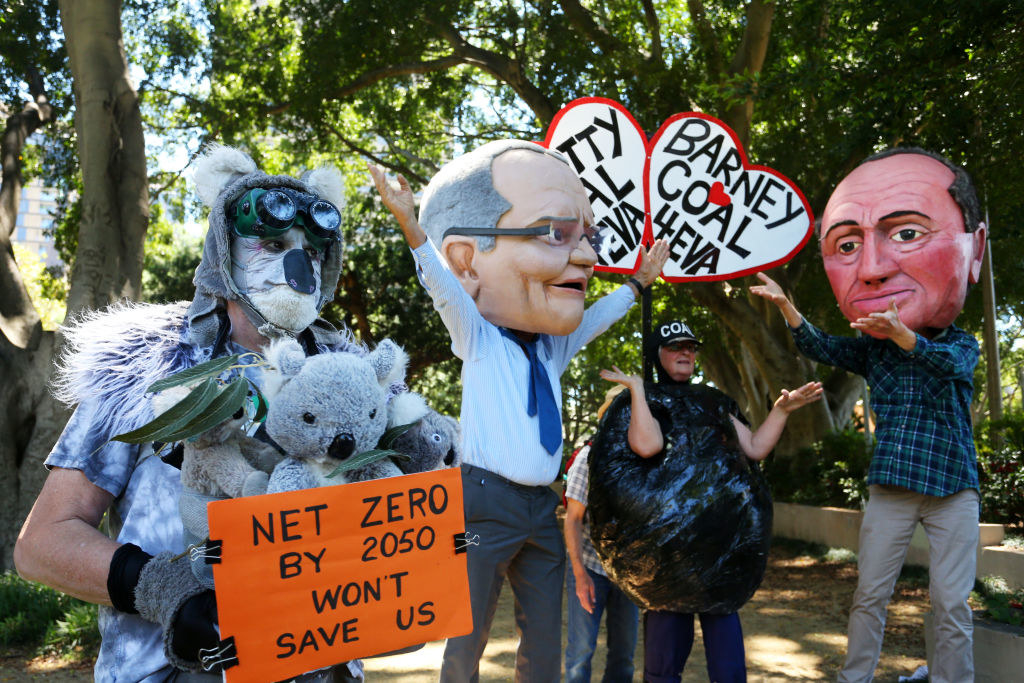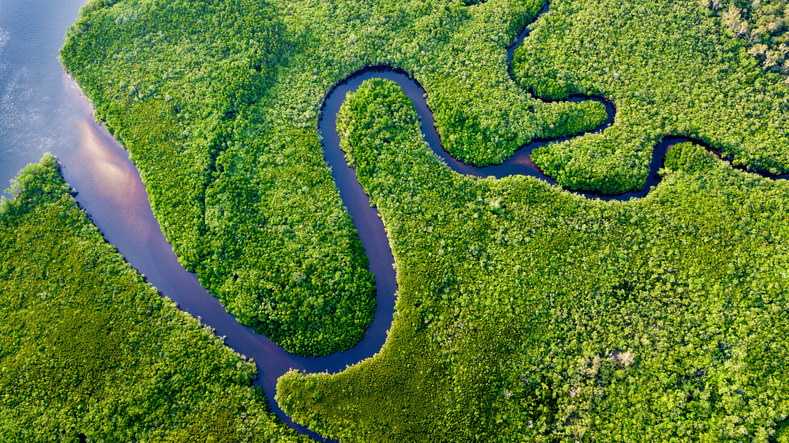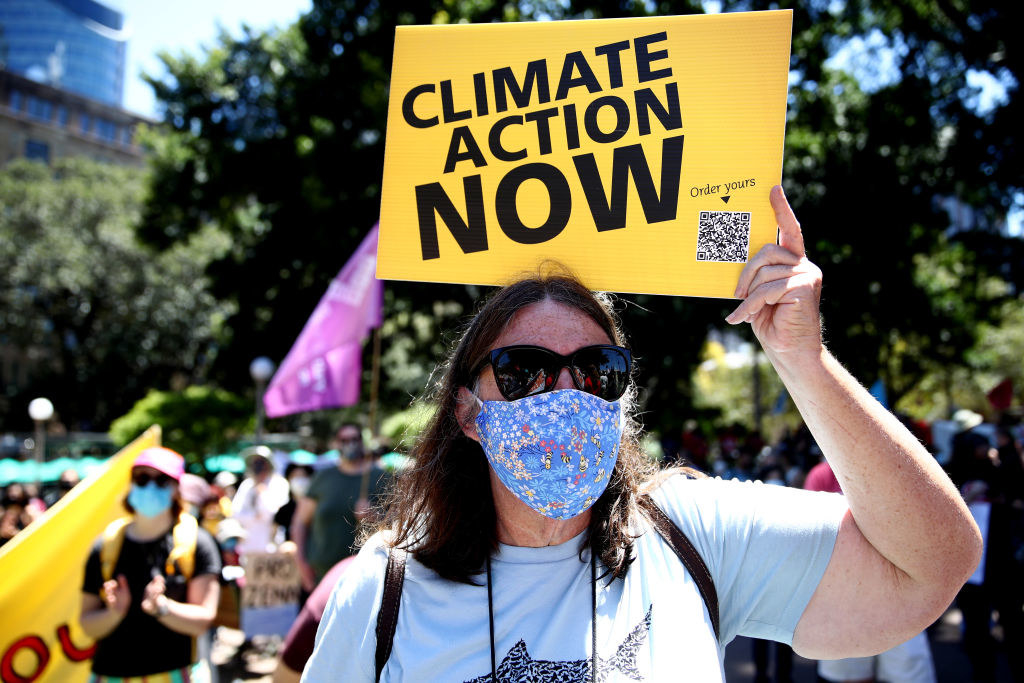The UN has released the latest Intergovernmental Panel on Climate Change (IPCC) report, outlining the threats in store for the world if immediate action is not taken to mitigate and protect ourselves from the effects of climate change.
Hundreds of scientists contributed to the report, which warns that if we don't both dramatically reduce greenhouse gas emissions and ready the world for what's coming, we "will miss a brief and rapidly closing window of opportunity to secure a liveable and sustainable future for all."
Closer to home, the catastrophic floods in Australia this week are a perfect example of how serious this really is.

Amid all of this – deep breath – some of us are still processing the news that koalas are getting critically close to extinction.

All of this to say: It's perfectly acceptable to have a heavy heart or to feel depressed or anxious in the face of so much distressing news. In fact, eco-anxiety is a rational response.
A 2021 survey by the Australia Institute also revealed that 75% of Australians are worried about climate change. So, you're not alone.
so busy having anxiety about the russia situation that i forgot to have my regularly scheduled anxiety about covid and the climate crisis
While it's normal to feel helpless in the face of all of this catastrophe, taking some kind of action is a good coping strategy. So we've compiled some of the things you can do to make a difference as our planet burns, floods and falls apart around us:
2. Exert as much pressure on politicians as you can.

3. Hold some companies accountable.
How you spend your money matters, whether it's divesting your superannuation or savings (you can check here if your bank has a record of funding the fossil fuel industry), or being more selective about where you shop (did you know that fast fashion is the third largest polluter and accounts for 5% of global emissions?). Our collective investment and daily spending decisions can amount to something huge.
5. Donate to, fundraise or volunteer for another organisation committed to the cause.
Sending money is the easiest thing to do, but if that's not an option there are other ways to be involved as well. Check out the work of Climate For Change, the Climate Council, Emergency Leaders for Climate Action, the Australian Conservation Foundation, Carbon Positive Australia, or the Australian Marine Conservation Society.
6. Reconnect with the environment by supporting conservation efforts.

7. Calculate your personal carbon footprint.
It's better to know than to not know, right? There are a few calculators available online, but this one from Carbon Positive Australia is specifically made with Aussies in mind.
8. Think about other small lifestyle changes you can make.
I'm not here to tell you to stop flying or eating meat (though personally, I would like to stop doing both of those things), but we could all surely continue to think of small steps we can take to reduce our carbon footprint, even in a marginal way.
Although the majority of emissions come from corporations and it's convenient for them to shift the focus to individuals, our consumer habits are still often what feed demand for whatever those corporations provide. Think about electricity consumption, driving habits, water usage, and, yes, food choices. Although it's certainly better to reduce your air travel, if you do have to take a plane you can calculate the carbon cost and donate to offset your emissions.
9. Learn something new.
It's overwhelming how much there is to know about climate change and sometimes preferable to not know, but how can we fix it if we don't understand it? Choose something that is important to you personally and become an expert on it. For example: Learn how climate change is affecting the mango industry (!!!) or read up on the impacts of climate change on First Nations communities and how traditional custodians of the land should be at the forefront of the response.
10. Join a rally or a climate strike if you can.

11. Or just have a conversation with someone.
Do you know of a friend or family member who isn't convinced of the urgency of climate action? Sit them down and gently try to find common ground, or educate them on the connection between something they find personally upsetting (a cow stuck on a roof in a flood) and the bigger picture of climate change. The Climate Council has provided a list of conversation guides you can reference to help you navigate difficult climate conversations.
12. And finally: take a breath, meditate, read a book, exercise, drink some water.
Climate anxiety can be debilitating, especially if you're directly impacted by the effects of climate change. Take breaks from reading the news and do whatever you need to do to care for your physical and emotional wellbeing. Try to find the stamina to continue the fight tomorrow in whatever way, big or small, that you can.
For more on coping with climate change distress, here's a helpful information sheet from the Australian Psychological Society.
If you're in Australia and need mental health support for yourself or a loved one, you can call Lifeline on 13 11 14 or Beyond Blue on 1300 22 4636.
